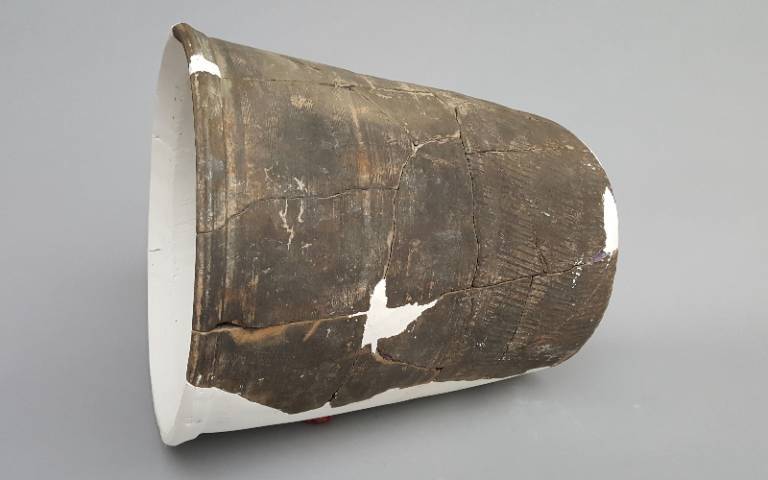China’s oldest water pipes were a communal effort
16 August 2023
A system of ancient ceramic water pipes, the oldest ever unearthed in China, shows that neolithic people were capable of complex engineering feats without the need for a centralised state authority, finds a new study by researchers at UCL and Peking University.

In a study published in Nature Water, the archaeological team describes a network of ceramic water pipes and drainage ditches at the Chinese walled site of Pingliangtai dating back 4,000 years to a time known as the Longshan period.
The network shows cooperation amongst the community to build and maintain the drainage system, though no evidence of a centralised power or authority. But, despite the apparent lack of a centralised authority, the town’s population came together and undertook the careful coordination needed to produce the ceramic pipes, plan their layout, install and maintain them, a project which likely took a great deal of effort from much of the community.
The level of complexity associated with these pipes refutes an earlier understanding in archaeological fields that holds that only a centralised state power with governing elites would be able to muster the organisation and resources to build a complex water management system. While other ancient societies with advanced water systems tended to have a stronger, more centralised governance, or even despotism, Pingliangtai demonstrates that was not always needed, and more egalitarian and communal societies were capable of these kinds of engineering feats as well.
Dr Yijie Zhuang (UCL Institute of Archaeology), senior and corresponding author on the paper, said: “The discovery of this ceramic water pipe network is remarkable because the people of Pingliangtai were able to build and maintain this advanced water management system with stone age tools and without the organisation of a central power structure. This system would have required a significant level of community-wide planning and coordination, and it was all done communally.”
Co-author Dr Hai Zhang of Peking University said: “Pingliangtai is an extraordinary site. The network of water pipes shows an advanced understanding of engineering and hydrology that was previously only thought possible in more hierarchical societies.”
Funding for this project was provided by the National Natural Science Foundation of China, the National Natural Science Foundation of China and the Newton Advanced Fellowship of the British Academy.
Links
- Read the full study in Nature Water
- Dr Yijie Zhuang's academic profile
- UCL Institute of Archaeology
- UCL Faculty of Social & Historical Sciences
Image
- A segment of ceramic water pipe excavated from Pingliangtai, now displayed at Henan Provincial Institute of Cultural Relics and Archaeology in Huaiyang.
- Credit: Yanpeng Cao
 Close
Close

